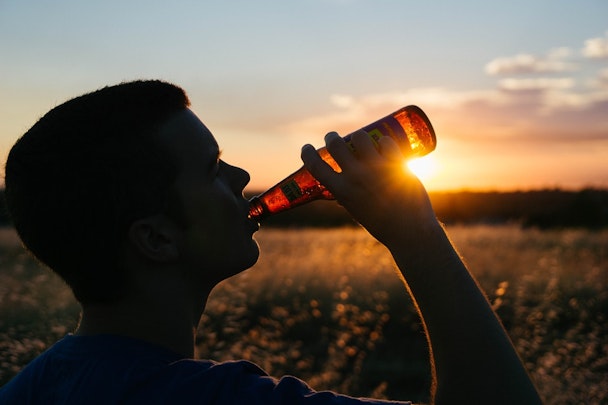Advertising Association meets with Scottish government to discuss advertising reforms
Scottish government officials will meet with the Advertising Association (AA) and Portman Group to outline their plans for reforms to alcohol advertising. But the real question likely to be on the minds of those representing advertisers is why a committee advising the government on those reforms is made up almost entirely of temperance campaigners.

Alcohol industry to meet with ‘expert’ panel of temperance campaigners to discuss advertising reforms.
Representatives from the Scottish government will convene with the AA later today (16 August), while the Portman Group has requested a meet. The AA could not comment on the detail of the plans but The Drum understands a ban of alcohol advertising at cultural and sporting events aimed at younger people as well as restrictions on print-based ads will be on the agenda. Discussions will inform the next phase of the Scottish government’s alcohol framework, due out later this year.
Director of Public Affairs at the AA, Sue Eustace said: “The Scottish Government understands that developing good policy means involving all stakeholders – and of course any work on alcohol advertising and marketing rules needs to involve the ASA and the Portman Group as the established regulators. Meanwhile, the AA and ISBA will continue to work with policymakers to show that the current alcohol advertising rules are strict and proportionate, as we make the case for responsible advertising as a net positive to Scotland’s economy, society and culture.
It is the Scottish government's first official encounter with the ad industry on the matter since it quietly formed an international group of experts (see below) at the turn of the year to advise it on tougher advertising measures. The move happened despite concerns over the group's constituents from at least one of the major alcohol producers. The fear being that the panel, which consists of health and marketing experts such as Gerard Hastings, professor of social marketing at Stirling University and Karine Gallopel-Morvan, professor of social marketing at the School of Public Health, is one-sided and could help push through tougher measures in the next phase of the Scottish government’s framework, according to a source close to the matter.
What’s more, many of those on the panel are anti-alcohol activists and temperance campaigners. For example, Katherine Brown, director of the institute of Alcohol Studies and Colin Shevills, director of campaign group Balance, are both pushing for an end to alcohol sponsorship in sport. Meanwhile, Hastings was exposed by The Times earlier this year for failing to declare his ties to a group funded by the temperance movement – the Institute of Alcohol Studies - during his involvement in the formation of controversial safe drinking limits.
The Scottish government has defended the makeup of the group, arguing that more is needed to curb a binge drinking culture that has led to Scots buying 20 per cent more alcohol on average than people in England and Wales. Nevertheless, it’s arguable that the anti-alcohol focused committee should better balance the health outcomes of its plans with views from the business world, of which Scotch whisky is the biggest net contributor to UK trade in goods.
Health secretary Shona Robison said: “The establishment of this group was a recommendation made by the Universities of Stirling and Sheffield in their independent report which found that the UK government’s alcohol policies are weaker than those implemented by the devolved nations. “This government has made it clear we believe the UK Government should do more to protect our children from exposure to alcohol advertising in all its forms which is why we established a wider review of alcohol advertising.”
Any changes to alcohol advertising that stem from the panel would be a fillip to the SNP, which has taken a hard-line anti-alcohol stance since it came into power in 2007. However, pushing that agenda has not been without its issues; while the SNP has already ended multi-buy deals and cut the drink driving limit, its attempt to introduce a minimum pricing for alcohol has struggled since 2009. Ministers are currently fighting a legal challenge by the drinks industry that saw a European Court judge in December argue it could breach international Union competition law by restricting imports of foreign alcohol. Separately, legislation that would have effectively banned billboard advertising for alcohol was rejected by Members of Scottish Parliament earlier this year.
A spokesman for the Portman Group said: “Alcohol marketing in Scotland is regulated through the Portman Group Codes of Practice. Specifically, the rules on alcohol sponsorship were developed in consultation with, and were endorsed by, the Scottish government and are supported by major alcohol producers and Scottish sports organisations. “We look forward to meeting with the Scottish Government to discuss the review of the alcohol framework, and how we can continue working together to reduce alcohol-related harms.”

